Business
Senators, Reps query NCC over secret recruitment, arbitrary funds increase
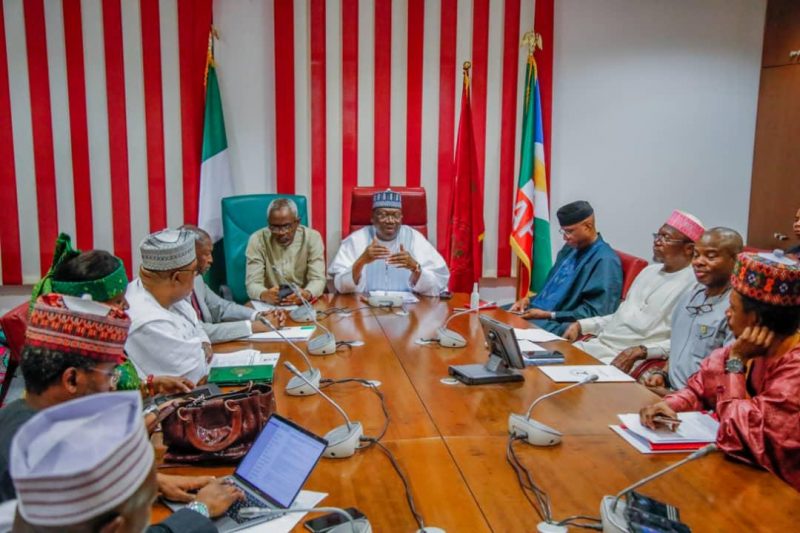
Federal lawmakers on Monday queried arbitrary increase in the financial provisions for payment of consultancy service of Nigerian Communications Commission (NCC), and N29.195 billion proposed for payment of salaries and wages in the 2021 fiscal year, against the sum of N16.850 billion approved in the 2020 fiscal year.
Members of the Joint Senate and House of Representatives’ Committee on Telecommunications, who raised the red flag during the 2020 budget performance and 2021 budget defence presented by the NCC Executive Vice Chairman, Umar Dambatta, also demanded an explanation over the increase in the consultancy services of N1bn proposed for 2021 against the sum of N394.331 million approved in the 2020 Appropriation Act.
One of the aggrieved lawmakers, who queried the Director of Finance and Administration’s report on the wide variance between the proposed N29.195 billion salaries and wages for 2021 and N16.850 approved for 2020 in relation to the 300 staff recruited by the commission, alleged that “you employed people but it was done through the backdoor.”
Hon. Siaka Adekunle Ayokunle alleged that “a lot of things are shredded in secrecy here”, expressed concern over the difference between the projected revenue and expenditure,
Senator Emmanuel Orker-Jev who expressed concern over the recruitment of the 300 workers, stressed the need for the commission to provide the nominal roll with a view to ascertaining the actual number of employees and adherence to federal character policy.
Dambatta, who was asked by the Director of Finance and Administration to provide details of the budget performance for the year under review, had said the budget performance as of November 30, 2020 showed the total budget of N140.383 billion, but the actual came to N79.660 billion.
He said, “For the expenditures (recurrent), a total recurrent expenditure that was budgeted was N39.297 billion and what was spent was N28.5 billion.
“Under the capital project, the total capital expenditure was budgeted at N8.129 billion and the actual as at 30th November was N1.427 billion.
“For special projects, the total budget was N20.863 billion and what has been spent so far is N13.65 billion.
“For total capital project, the budget was N28.9 billion and what was spent was N1.4 billion; Transfer to USPF, N7.5 billion was projected and N5.583 billion was spent.
“For Transfer to Federal Government of Nigeria, N64.208 billion was budgeted and N35.7 billion was remitted.”
On the revenue side, the commission realised total sum of N167 million out of N1.5 billion budgeted for licensing fees; realized N51.5 billion out of N68.5 billion for annual operating levy; realized N22.778 billion out N47.653 billion budgeted.
From the documents presented to the joint committee, proposed total revenue expected for 2021 stands at N112.810 billion and an additional sum of N49.527 billion from funds for broadband infrastructure and transfer from reserve (totalling N162.067 billion for 2021), against the sum of N123.132 billion and an additional sum of N17.252 billion from funds for broadband infrastructure (totalling N140.384 billion) for year 2020.
The total recurrent is also expected to rise from N39.297 billion in 2020 to N61.541 billion in 2021; total capital and special expenditure are to rise from N28.993 billion in 2020 to N51.524 billion in 2021; showing an overall increase in the Commission’s total expenditure from N68.290 billion in 2020 to N113.065 billion in 2021 as proposed.
The commission’s projected transfer to the Federal Government for the year 2021 is N42.002bn against N64.208bn for the year 2020 out of which N29.697bn has so far been remitted, in addition to N5.5 billion paid recently.
Chairman, House Committee on Telecommunications, Hon. Akeem , said, “Legislative approval to budget proposal is a cardinal ingredient of democratic practice. It provides a window of checks on the expenditure profile of the Executive, so the people, through their representatives have a say on how the Executive arm of government runs the government as part of the checks and balances of governance.
“It is pursuance to this that we are here to examine your proposal for 2021. The extent to which your commission was able to meet its 2020 budget responsibility will also be examined to identify if they were problems and how to resolve them where they exist.”
Adeyemi who directed the NCC management team to provide the nominal roll for further legislative action, said the “Committee will call for interactive session sometimes next year with the view to addressing some of the concerns raised.”
Dambatta promised that the nominal roll would be made available to the committee as requested.
Auto
Carloha announces Chery SUV gift for NAPE Charity Golf Tournament winner

Carloha announces Chery SUV gift for NAPE Charity Golf Tournament winner
Ultimate winner of the forthcoming NAPE Charity Golf Tournament holding in Abuja will drive home Chery Tiggo 8 Pro, a superlative sport utility vehicle.
Carloha Nigeria, one of the major sponsors of the event, disclosed this in a statement issued in Lagos.
The golf tournament is scheduled to take place at the prestigious IBB Golf & Country Club, Abuja, on October 26, 2024.
Carloha, franchise holder and assembler of Chery vehicles in Nigeria, said its sponsorship of the tournament was part of its commitment to fostering sports development in the country.
Part of the statement read, “Chery is offering its flagship SUV, the Tiggo 8 Pro as the ultimate prize for any player who achieves a hole-in-one during the tournament.
“This event promises to be an unforgettable experience for golf enthusiasts and those passionate about positively impacting our community.”
It specifically noted that the highlight of the tournament would be the incredible hole-in-one winning feat attracting a prize of Chery Tiggo 8 Pro generously provided by Carloha without insurance premium coverage for the tournament.
This prize is said to underscore Chery’s support for sporting initiatives in Nigeria and reflect the brand’s passion for nurturing talent and promoting community engagement through sports.
Director of Sales for Carloha Nigeria, Mr. Joseph Omokhapue, said, “We are glad to be one of the major partners in the NAPE Charity Golf Tournament, and offering an amazing prize for the hole-in-one with Tiggo 8 Pro represents Chery’s dedication to supporting sports in Nigeria, as well as enhancing the excitement and competitiveness of the tournament, making it an event to remember.
“More importantly, this gesture is one of the many ways Carloha is contributing to the underprivileged in our society by associating with the NAPE Charity Golf Tournament.”
By participating in this prestigious event, Golfers have the chance to showcase their skills and also contribute to a worthy cause.
Proceeds from the tournament would go towards supporting local charities, creating a lasting impact on the lives of those in need, the statement added.
The Tiggo 8 Pro, according to the firm, is renowned for its luxury, cutting-edge technology, stylish design, dynamic performance, and it perfectly embodies Chery’s dedication to excellence for on and off-road experience.
The Tiggo 8 Pro features an elegant, high-tech electronic gearshift system that provides effortless and precise control, enhancing safety performance and ease of operation, adeptly tailored for the diverse terrains of Nigeria.
It urged golfers and sports enthusiasts to get ready to swing for success at the NAPE Charity Golf Tournament.
“We look forward to seeing you at the IBB Golf Country Club as we come together to make a difference, promote sports development in Nigeria, and celebrate the Chery brand,” it stated.
As part of its commitment to make vehicle ownership easy and affordable for all, Carloha Nigeria offers a remarkable 6-year warranty/200,000 kilometers, 6-year free service on all Chery vehicles, a flexible auto financing solution with the best price for all vehicles, and 24/7 services and parts support nationwide.
This ensures that owners can enjoy their Tiggo 8 Pro with confidence, knowing they have reliable support and service from Chery for years to come.
Auto
NNPC to establish 40 new CNG stations nationwide
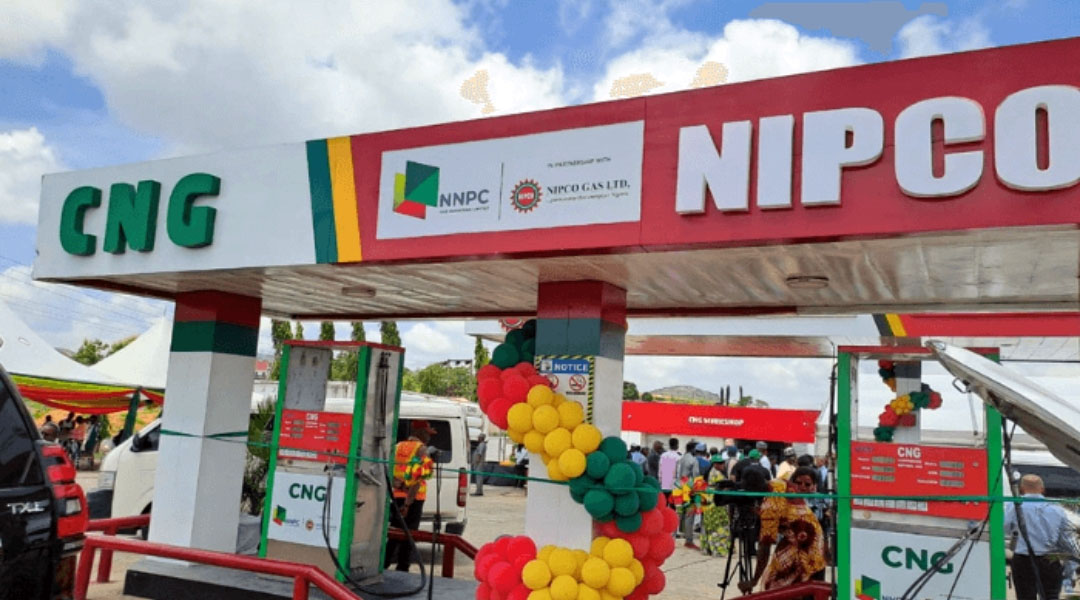
NNPC to establish 40 new CNG stations nationwide
The Nigerian National Petroleum Company (NNPC) has acquired equipment to establish 40 new Compressed Natural Gas (CNG) stations across the country, as part of efforts to expand CNG infrastructure.
This comes as the Federal Government aims to set up 100 CNG stations within six months.
Oluwagbemi Michael, Director of the Presidential CNG Initiative, revealed the plans during an event in Ogun State.
He noted that 12 CNG stations were set up in the past year, six in Abuja and six in Lagos, with further expansion underway.
READ ALSO:
- No more application fees for Lagos scholarship, bursary – Sanwo-Olu
- Lagos seals 352 churches, mosques, others for pollution
- Israel confirms killing Safieddine, likely successor to slain Hezbollah’s Nasrallah
This move follows concerns over the limited availability of CNG stations, which has slowed the adoption of CNG as an alternative to petrol.
Michael highlighted ongoing investments in infrastructure, including a recent N122bn funding for private companies involved in CNG distribution.
He also mentioned the government’s plan to distribute one million CNG conversion kits to commercial drivers, which is expected to increase demand and attract more investors to the sector.
Additionally, existing petrol stations are being upgraded to include CNG refuelling points, with 40 such upgrades planned by the NNPC.
NNPC to establish 40 new CNG stations nationwide
Business
MTN threatens to shut down services without tariff hike
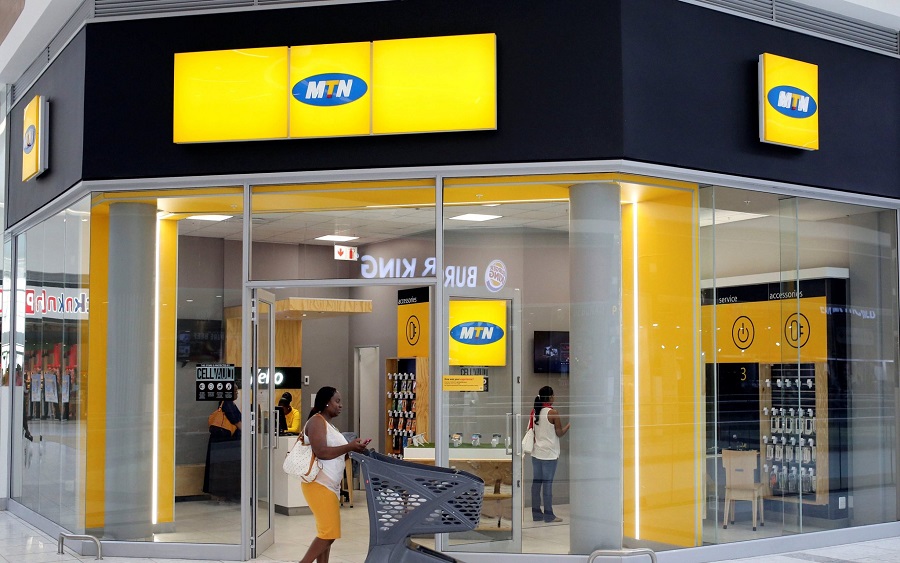
MTN threatens to shut down services without tariff hike
MTN Nigeria has warned of a potential shutdown if tariffs are not increased to address the rising operational costs that are threatening the profitability of the telecommunications sector.
During a tour of MTN’s facilities in Ibeju-Lekki, Lagos, MTN’s CEO, Karl Toriola, said the telecom sector has been facing significant financial losses and urgent measures are needed to reverse the trend.
Toriola pointed out that MTN, which currently has around 78 million subscribers, is operating on reserves accumulated over the past two decades, a situation he described as unsustainable.
READ ALSO:
- Air Force mourns death of 5 personnel in Plateau road crash
- VeryDarkMan wants Portable arrested over viral assault video
- Vinicius Jr will win Ballon d’Or, says Ancelotti
The company’s operating costs, especially diesel prices needed to power its base transceiver stations, have surged, adding pressure to its financial performance, he added.
The CEO stressed the importance of returning the telecom industry to profitability, warning that without a tariff hike, MTN might be forced to shut down operations.
“There should be no delusion; if the tariff doesn’t go up, we will shut down,” he said.
He noted that MTN, once one of the largest corporate taxpayers in Nigeria, has seen a decline in its tax contributions due to the financial challenges the sector is facing.
MTN threatens to shut down services without tariff hike
-

 News2 days ago
News2 days agoFIRS announces recruitment of young graduates
-

 metro3 days ago
metro3 days agoUpdated: Army says reports of COAS Lagbaja’s death fake news
-

 metro2 days ago
metro2 days agoOluwo chased me out when I visited him – Ooni (VIDEO)
-

 News2 days ago
News2 days agoOsinbajo traitor, can’t talk about integrity – Reno Omokri
-

 metro2 days ago
metro2 days agoFani-Kayode: How my aide died in hotel after attending church
-

 Business1 day ago
Business1 day agoWe’re settling out of court with NNPC, others — Dangote
-

 metro2 days ago
metro2 days agoBREAKING : DSS replaces Tinubu’s chief security officer
-

 News2 days ago
News2 days agoYou can’t overrule Supreme Court on LG autonomy – Klinsmann tells Soludo

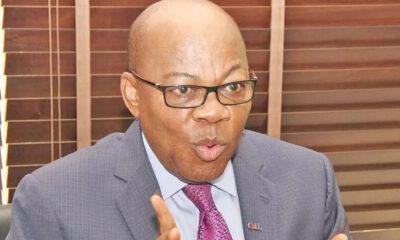

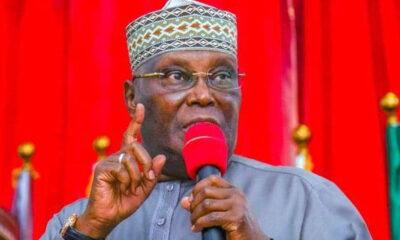

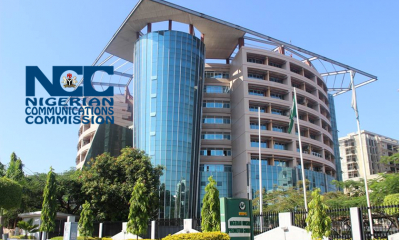





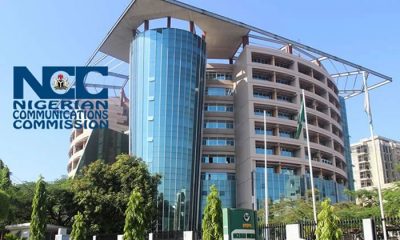



You must be logged in to post a comment Login